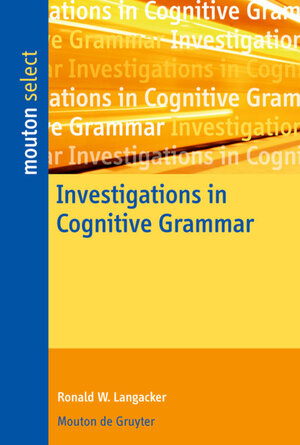
×
![Buchcover ISBN 9783110214345]()
„Ronald W. Langacker is universally acclaimed as one of the founding fathers of the cognitive linguistics movement. His pioneering efforts towards developing a meaning-oriented, usage-based theory of grammar have given cognitive linguistics many of its key concepts, and his theory of Cognitive Grammar is not only one of the cornerstones of cognitive linguistics, it is also a magnificent achievement in its own right.“ Dirk Geeraerts, January 2009
Investigations in Cognitive Grammar
von Ronald W. LangackerThis volume makes accessible a substantial range of recent research in Cognitive Grammar. From disparate sources, it brings together a dozen innovative papers, revised and integrated to form a coherent whole. This work continues the ongoing program of progressively articulating the theoretical framework and showing its descriptive application to varied grammatical phenomena. A number of major topics are examined in depth through multiple chapters viewing them from different perspectives: grammatical constructions (their general nature, their metonymic basis, their role in grammaticization), nominal grounding (quantifiers, possessives, impersonal it), clausal grounding (its relation to nominal grounding, an epistemic account of tense, a systemic view of the English auxiliary), the „control cycle“ (an abstract cognitive model with many linguistic manifestations), finite clauses (their internal structure and external grammar), and complex sentences (complementation, subordination, coordination). In each case the presentation builds from fundamentals and introduces the background needed for comprehension. At the same time, by bringing fresh approaches and new descriptive insights to classic problems, it represents a significant advance in understanding grammar and indicates future directions of theory and research in the Cognitive Grammar framework. The book is of great interest to students and practitioners of cognitive linguistics and to scholars in related areas.




